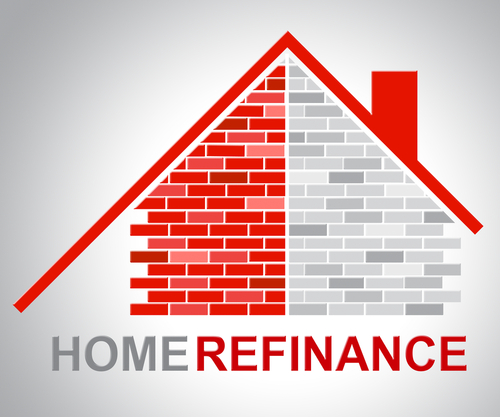If you want to reduce your mortgage rate and monthly payment, or if you need cash for home improvements, refinancing your mortgage may seem like the solution. But although refinancing can achieve some of your goals, they are reasons to think twice before refinancing your house.
Refinancing is the process of getting a new home loan to replace an existing loan. A new mortgage with new terms can be financially rewarding, but refinancing isn’t for everyone. Here is why you should think twice before refinancing.
-
Your credit needs improving
Many people refinance with hopes of getting a lower interest rate and reducing their monthly payments. This improves cash flow, and borrowers can use extra money to pay off other debts or build their emergency savings accounts.
It’s important to realize, however, that a low interest rate isn’t a right—it’s a privilege. And unfortunately, refinancing to a lower interest rate requires a good credit score. Before you apply for a new mortgage, check your credit report and credit score to see where you stand. Depending on the lender, you’ll need a minimum credit score of 680 to 700 to qualify for the best mortgage rates. You can improve your credit by paying bills on time, disputing errors on your credit report and paying off consumer debt.
-
You’re thinking about moving
Some homeowners don’t count the cost of refinancing. Since the process creates a new mortgage loan, you’re responsible for paying closing costs. This can range from 2% to 5% of the mortgage balance. You can pay closing costs out of your own funds, or include the cost in your new mortgage balance.
The fact that refinancing involves fees shouldn’t be a deal breaker—as long as you plan to live in the home long enough to recoup these fees. It doesn’t make sense to refinance and spend thousands when you plan to move within the next year. To determine whether refinancing makes sense, divide the monthly savings after refinancing by the amount of your closing costs. If refinancing reduces your mortgage balance by $250 a month and you paid $7,000 in closing cost, you’ll need to live in the home for at least 28 months to break even.
-
Home values are declining
A cash out refinance lets you tap your equity without selling the home. In most cases, you can borrow up to 80% of your home’s value. You can use funds for debt consolidation, home improvements, business start up, college tuition, etc.
Understand, however, that a cash out refinance increases your mortgage balance and reduces your home’s equity. For that matter, you should think twice about refinance if local home values are declining. If your home value drops before you’re able to pay down your new mortgage balance, you could end up with an upside down home loan—where you owe more than the home’s worth.
-
You have a prepayment penalty
You should also think twice about refinancing if your mortgage has a prepayment penalty. Some mortgage lenders include this penalty to discourage borrowers from refinancing their homes too soon, thus allowing the bank to collect a certain amount of interest on the property.
The good news is that prepayment penalties don’t apply to every mortgage loan; and mortgage lenders can only charge the penalty for the first three years. If you refinance during this period, the penalty can be several month’s worth of interest.








